► Opening doors to fresh talent from all nations and background
► Motorsport’s governing body could lead the change
► Ex-WRC co-driver outlines how it’s a win-win
Imagine a Formula 1 grid with drivers as diverse as the countries that host Grands Prix. Imagine World Rallying that didn’t just visit Kenya, but had a succession of Kenyan champions. Imagine there being a just, meritocratic world in which the reigning champion would not have felt the need to take the BLM knee and set up the Hamilton Commission to look at the barriers to the recruitment and progression of Black people within UK motorsport. Imagine taking the race out of racing, and putting the world into world championship.
Sounds a stretch? Former top-flight rally co-driver Robert Reid believes it’s all achievable, and has a detailed plan for how to set the wheels in motion. Reid – best known as co-driver for Richard Burns, WRC champion in 2001, and more recently active in driver development in the UK and globally – said: ‘If an interest has been sparked, and people want to have a go themselves, how do you support them to get involved? That’s what we need to do.’
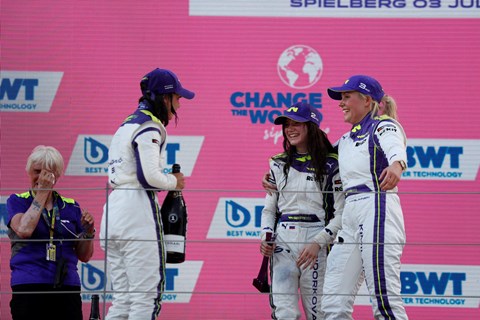
The aim is to nurture talent around the world, helped by F1 money, strengthening grassroots motorsport where it already exists and clearing pathways to the elite level for the most talented and determined newcomers, regardless of race or background.
Whenever top-flight motorsport visits a developing nation, it should make a point of engaging with local enthusiasts and sharing know-how, boosting the skills of local clubs, encouraging growth and providing practical assistance, such as pre- or post-race workshops, boosting STEM (science, technology, engineering, mathematics) education and backing new engineering scholarships.
Why’s this come up now?
Two main reasons. One, the FIA presidential election is happening in December. Jean Todt is standing down after 12 years. Former rally driver Mohammed ben Sulayem – winner of 14 regional titles – is a candidate, with Reid as one of his vice-presidential candidates.
The other reason diversity and inclusion is on the agenda is the Hamilton Commission, which shone the spotlight on the obstacles hindering those who might otherwise follow Lewis Hamilton’s path to the top. Ben Sulayem’s team has also published a report, Diversity & Inclusion in Motorsport, looking at the challenges around the world.
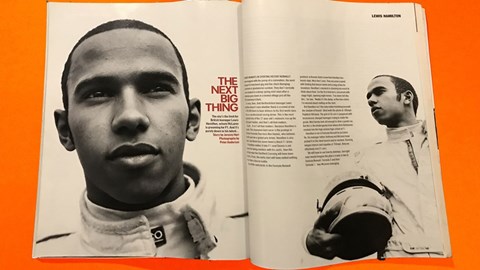
What’s the vision?
‘I think of it as opportunities for all,’ Reid told CAR. ‘I’m envisaging add-on courses, like a post-graduate course, to prepare you for a career in motorsport. But not just top-level engineers, also technicians, medical officers, team managers, driver managers, drivers, coaches…’ Or think of it as the motorsport equivalent of PADI, the globally recognised diving instructors’ organisation: there’s no reason, according to Reid, the FIA can’t be the worldwide standard for motorsport-related activity.
‘The FIA University is one of the mechanisms by which we’re going to try to do something. There’s a huge amount of knowledge in the sport that we can leverage. The FIA is in a unique and powerful position. We’re not trying to monetise education. We would be a global federation, open-source and inclusive in terms of the sharing of that knowledge.’
The FIA University already exists (as a worldwide programme, not as a physical campus), focused on mobilty projects in developing countries – essentially, helping people get on four wheels, safely, for the first time. The idea from the Mohammed ben Sulayem presidential team is to add motorsport to mobilty as another role for the University – the two elements are intrinsically connected.
‘Somebody who drives their car to the shops or to work, the next stage in that car use journey is using your car for leisure,’ said Reid. ‘If you want to do something a bit more exciting, you can start to compete.’
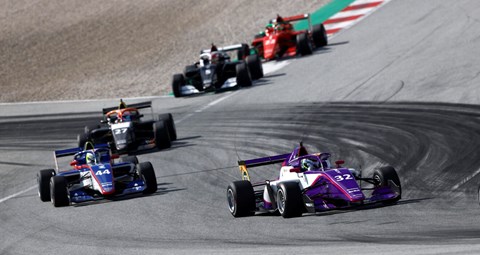
How realistic is it?
‘The FIA has clubs in all the regions of the world. If we wanted to have a driver from sub-Saharan Africa in Formula 1, it would be possible to do so next year. But they wouldn’t be there on merit; there would be an element of tokenism. What the FIA can bring to all these programmes is this capacity-building in the regions and the clubs and make it so the clubs have championships and motorsport infrastructure and audiences and all the different aspects locally, which will spawn good talent.
‘We need to make sure the bottom of the development pyramid is affordable and accessible. The top of the pyramid needs to be aspirational and achievable. If we get that balance right, the basic ecosystem is there. The other aspect is how do you get from the bottom to the top – where are your pathways? Where’s the talent identification? How do we support people through scholarships or internships?
‘It’s good that we can get people from Latin America to the US or from Asia and Africa to Europe [for advanced teaching], but ideally it should be available on these continents. We should be building the capacity for them to become self-sufficient.’
He added: ‘World championships need to be world championships or they lose value.
‘In rallying we went back to the Safari this year, and I was delighted to see that, being a two-times winner, but for 19 years the WRC hasn’t had an event in Africa. The Kenyan motorsport federation has now got a three-car young driver team doing African championship rallies off the back of the hype and excitement of the Safari Rally.
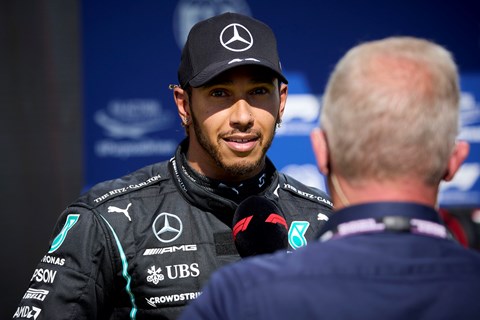 ‘Without these big events, the shop window, it’s hard to get that enthusiasm. But on the flip side, you need the capacity building, the infrastructure there with the clubs on the ground so that you can convert that interest: okay, you can go karting at this venue, you can get involved in this kind of way.
‘Without these big events, the shop window, it’s hard to get that enthusiasm. But on the flip side, you need the capacity building, the infrastructure there with the clubs on the ground so that you can convert that interest: okay, you can go karting at this venue, you can get involved in this kind of way.
So what’s standing in the way?
‘One of the biggest challenges we have is the cost of the very bottom of the pyramid, grassroots motorsport. We need to ensure there’s the opportunity for low-cost vehicles for people to progress. That spawns a motorsport infrastructure – people driving, but also people helping them.
‘Having spent a lot of time doing Asia-Pacific rallying, I understand the value of having a big event in these places. Everybody gets excited by it. That’s great. The problem is joining the dots. If an interest has been sparked, and people want to have a go themselves, how do you support them to get involved? That’s what we need to do.
‘A lot of people will only ever want to do the bottom level, will only ever want to do it for fun. We need to make sure they can have a whole motorsport career at that level, enjoying themselves. Similarly, there will be people that want to progress, and we need to be able to create these pathways, through the learning that we’re proposing.’
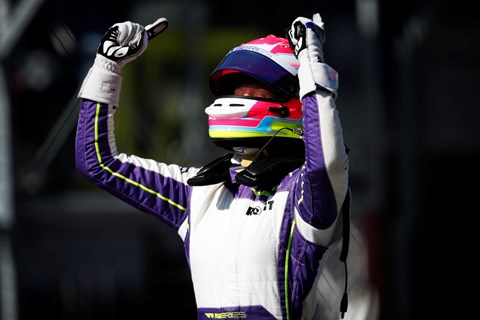
Is the problem ultimately one of prejudice, or outright racism, with doors being slammed in the face of non-white talent? No, said Reid, it’s more a case of people failing to see the problem, or failing to see how they can help.
‘Within the system I haven’t really seen a problem. But getting into the system would be another thing. Certainly there are barriers. We need to break down as many of these as we can.
‘Sometimes it’s not even knowing there’s a door there to open. All of us involved in motorsport think it’s this big global great thing. But it’s pretty niche. And in some countries it’s very niche.
‘There have been F1 races in the Gulf for a number of years, but we’ve still to have a Middle Eastern F1 driver, so clearly we’re not doing the job properly yet. We’ve created a shop window but we have more work to do to ensure that these drivers have the opportunity to come through.’